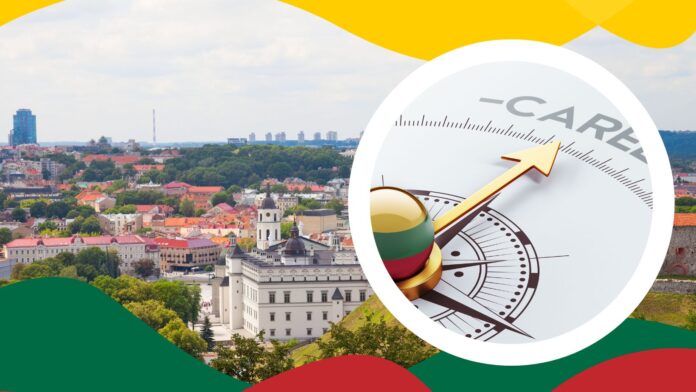
Last year, the Vilnius Bureau of the International Organization for Migration (IOM) conducted a survey (via Spinter Research) of Lithuanians who moved back to Lithuania after living abroad for at least three years.
Respondents of the survey felt that easy to access information on the internet and digital public services were the most helpful for their reintegration into the Lithuanian environment. They noted that the process might be made easier by a specialist in each municipality who could answer all questions about work, housing, taxes and social services.
Returnees indicated that employment (especially for non-qualified work), housing, registration and children’s enrollment in the school system presented the greatest difficulty. Less problematic was handling bureaucratic procedures and accessing social services.
Almost all returning Lithuanians stressed the importance of clearly presented information and consultations and found it easily on the internet and through projects such as “Renkuosi Lietuvą“ (I Choose Lithuania) and “Gal į Lietuvą“(Maybe Lithuania), and the websites of various institutions. However more attention is required at the municipal level for people who have gone back and encountered specific problems. Municipalities could have personnel for helping those coming back from abroad.
IOM Vilnius “Choosing Lithuania” director Edita Urbanovič that an increasing number of returning Lithuanians have done their homework from abroad. She says that at the beginning of the project seven years ago they would be approached by 200-400 people per year. Now they receive that number of queries over a few days, so it’s clear that the number of returnees and the need for useful information is increasing as well.
The survey showed that Lithuanians intending to return mostly use the information at “I Choose Lithuania” and “Maybe Lithuania”, as well the the “Sodra” (social insurance) websites and social media. They also preferred using the internet to accomplish certain tasks required by institutions, and being able to ask for assistance by telephone.
Director Urbanovič notes that both internet and live advice should be available to accommodate the two styles of communication.
Survey results showed a lack of individual consulting availability at the municipal level, forcing returnees to look for answers at various offices, especially regarding children’s integration into the school system.
Re-integration is easier for those who realize that the process is not simple and prepare ahead of time. Talking to others who have gone through the process is also very helpful. Community support is very important as well, showing welcoming and positive attitudes rather than assuming some sort of failure as a reason for the families’ return. Experience shows that most return because they miss their extended families and their country, and go back having earned some money and gained experience and prefer to raise their children in Lithuania, or to start a business there.
Returning to Lithuania may not be a final decision, so it is very important that returnees may use their experience and regain stability, because without support they may emigrate once more and not return, which would be a huge loss for the country.
Alkas.lt



























